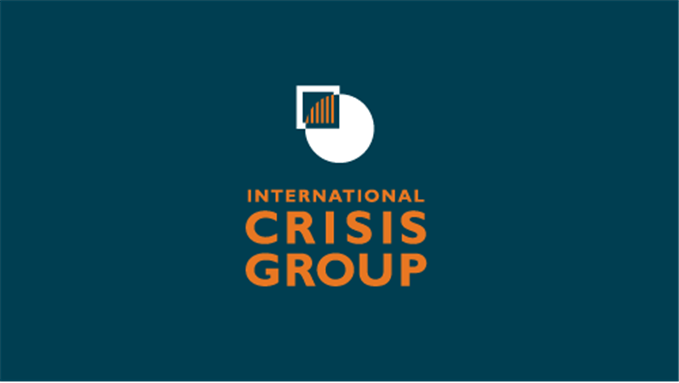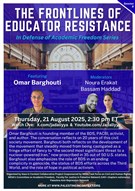[This report was issued by the International Crisis Group on 17 October.]
Oil and Borders: How to Fix Iraq’s Kurdish Crisis
- What happened? On 16 October 2017, the Iraqi federal government launched an operation to restore Iraqi sovereignty over the disputed territories, including Kirkuk and its oil fields. This reversed the situation in place since the Iraqi army collapsed in the face of an onslaught by the Islamic State in June 2014.
- Why did it happen? The action was triggered by the independence referendum staged by the Kurdistan Regional Government on 25 September, in which Kurds overwhelmingly cast “yes” votes.
- Why does it matter? These actions have broken what remained of the tense relationship between Baghdad and Erbil. Yet the only sensible way forward is a return to UN-led negotiations, supported by the U.S., EU, Iran and Turkey.
- What should be done? Future talks should centre on the issues that gave rise to the current crisis in the first place: the unresolved status of the disputed territories, and the question of oil revenue-sharing.
I. Overview
In the early hours of 16 October, Iraqi federal forces launched a drive toward Kirkuk city that Prime Minister Haider al-Abadi said was aimed at retaking oil fields, an air base, the airport and federal installations lost in June 2014 when the Iraqi army collapsed in the face of an onslaught by the Islamic State (ISIS). The military move, which met with relatively little resistance, reportedly was enabled by a deal between the Abadi government and a faction of the Patriotic Union of Kurdistan (PUK).The PUK mostly withdrew, while forces of the rival Kurdistan Democratic Party (KDP) of Masoud Barzani, president of the Kurdish region, who staged a popular referendum on Kurdish independence in late September, fled. In the end, federal forces established control not only of the oil fields, but of an even more emotional prize, the city of Kirkuk.
At the root of the conflict in Kirkuk – and potentially in other parts of the disputed territories as well – is the failure to resolve the status of these areas through negotiations since 2003. A constitutional article (Article 140) that prescribed a process by which to do so never was implemented. This triggered great frustration with Kurdish leaders, who long had laid claim to these areas. Their acquisition of Kirkuk and its oil fields and other strategic installations in June 2014 was a windfall. They filled the security vacuum and continued to entrench their positions for the next three years. Barzani repeatedly declared that these areas were now “Kurdistani” and would stay in Kurdish hands.
The federal government considered the Kurdish parties’ control as unilateral and temporary, to be reversed – by undetermined means – once ISIS was defeated. That opportunity arrived in early October with the rapid defeat of ISIS in Hawija, a district town in Kirkuk governorate, which brought battle-ready Iraqi troops closer to Kirkuk city and the oil fields. It was triggered by Abadi’s need to reassert Iraqi sovereignty over these areas in the wake of the Kurdish independence referendum, which took place not only in the Kurdish region but also in Kurdish-controlled parts of the disputed territories such as Kirkuk. And it was enabled by intense inter-Kurdish rivalries between the KDP and PUK, as well as an intra-KDP power struggle between Masoud Barzani’s son, in charge of the region’s security file, and his nephew, its prime minister.
These short-term military advances spell long-term trouble. To prevent further escalation that might escape the respective leaders’ control, and bend the chain of events toward a negotiated outcome, outside parties with most influence in Iraq – the U.S., Iran and Turkey – need to step up their pre-referendum mediation efforts. In principle, all three share an interest in stabilising the situation. All three were irked if not outright angered by Barzani’s decision to proceed with the September referendum. All support the territorial unity of Iraq. All accept the integrity of the Kurdish region and have consistently opposed unilateral attempts at settling the status of the disputed territories.
The basis for mediating a settlement is therefore there, but serious obstacles remain. First, and notwithstanding the objective alignment in the external parties’ interests, tensions among them – and particularly between the U.S. and Iran, which were exacerbated by President Trump’s decision to decertify the nuclear deal – could well get in the way. Crisis Group warned of the spillover potential of the president’s decision, and Iraq could be the first victim. Second, the outbreak of violence could make a settlement far harder if not impossible to reach, especially should the parties, fuelled by domestic political imperatives, escalate. To avert this outcome, forceful mediation should be undertaken at once; a renewed UN role could be critical in this respect, as it would give cover to efforts made by these three states in their individual capacities.
Beyond that, if and when fighting has been halted, a peaceful way to settle the deeper issues that are driving this conflict exists. Indeed, the current crisis offers an opportunity to resume a track that was abandoned amid election fervour eight years ago. In 2008-2009, the UN Assistance Mission in Iraq (UNAMI) carried out an extensive study on what it called Iraq’s “Disputed Internal Boundaries” (DIBs) and proposed specific ways forward to settle the question of the Kurdish region’s boundary and the disposition of the income derived from the sale of oil and gas located there.
Progress on the DIBs could be interpreted by both sides as a face-saving way out, as both need the internal border to be defined and a fair and workable resource-sharing deal in place. It also would serve the interests of Iran and Turkey, the key de facto veto holders on Kurdish statehood, as it would bind Baghdad and Erbil more closely together and thus offer at least a temporary reprieve from the Kurds’ secessionist agenda. Western states have been strong supporters of this approach. Its resuscitation therefore could be a win-win for all main stakeholders.
What is required following a ceasefire is a UN Security Council resolution providing a renewed mandate for UNAMI, with support from all key outside parties, to address the DIBs question as a matter of priority. A serious effort to solve that critical concern would maintain Iraq’s unity without pre-empting the Kurds’ right to self-determination nor prejudging how it might be expressed in the future.
Brussels, 17 October 2017
[Click here to download full report.]

















